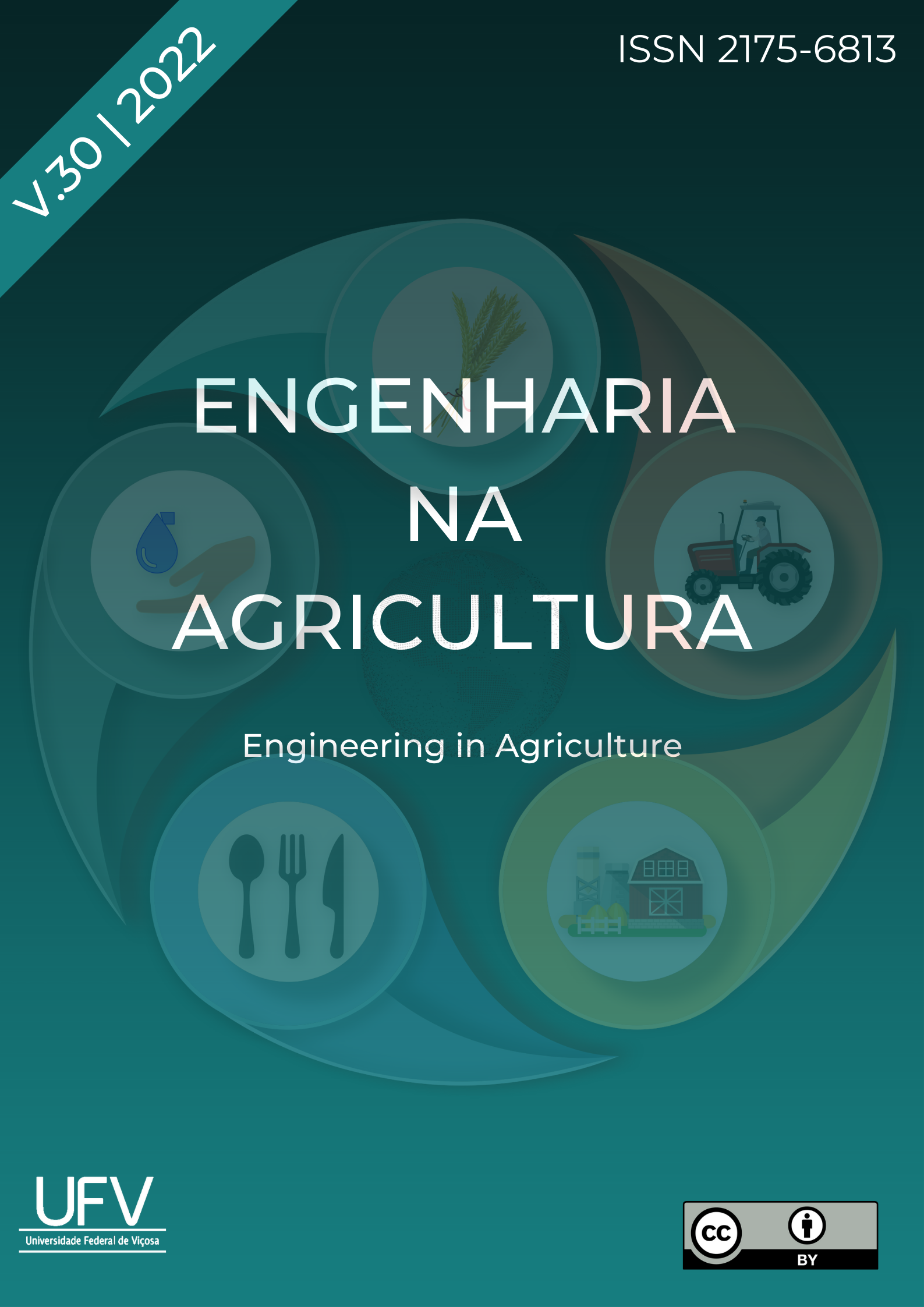Prototype of automated irrigation system using raspberry pi and solar energy
DOI:
https://doi.org/10.13083/reveng.v30i1.14275Keywords:
Automation, Photovoltaic solar energy, IoT, IrrigationAbstract
According to surveys and projections by the United Nations (UN), by the year 2100, the world population will reach about 11.2 billion people. Thus, the need arises to develop modern technologies for food production aimed at the future population. Irrigation performed correctly can increase crop productivity, and automated systems are an excellent alternative for controlling irrigation processes. Among the most varied forms of powering water pumping systems, photovoltaic solar energy has become a viable and sustainable alternative for energy generation. This work aimed to build and analyze a prototype of automated irrigation powered by photovoltaic panels, using Raspberry Pi, Arduino, ESP8266 and MQTT protocol to inform the user on a mobile device about the monitoring of the system. Despite being a low-cost system, approximately R$ 2.000.00, the results obtained through the sensors showed good accuracy. With the use of IoT technology, it was possible to monitor soil moisture information that impacts the production system instantly. In addition, using part of the prototype to obtain soil moisture by sending the information via the internet, without needing for a physical connection, proved effective in sending the data.
Downloads
References
ALVARENGA, A. C.; FERREIRA, V. H.; FORTES, M. Z. Energia Solar Fotovoltaica: Uma Aplicação na Irrigação da Agricultura Familiar. Sinergia, v. 15, n. 4, p. 311-318, out. 2014.
BARBOSA FILHO, W. P., WEMERSON, R. F., AZEVEDO, A. C. S., ANTONELLA, C. Expansão da energia solar fotovoltaica no brasil: impactos ambientais e políticas públicas. Revista Gestão & Sustentabilidade Ambiental. Santa Catarina, dezembro, 2015.
CAMPOS, M. S.; DE ALCANTARA, L. D. S. Sistema de bombeamento fotovoltaico para irrigação na agricultura familiar. Brazilian Journal of Animal and Environmental Research, v. 1, n. 1, p. 205-214, 2018.
IEA. International Energy Agency. Final Consumption – Key World Energy Statistics 2020. Available in: <https://www.iea.org/reports/key-world-energy-statistics-2020/final-consumption>. Access in Jul., 24, 2022.
MESQUITA, M. J. Método de avaliação do nível de sustentabilidade de programas de eletrificação rural com sistemas fotovoltaicos individuais. 2014. 116 f. Dissertação de Mestrado (Mestrado em Engenharia Elétrica) — Universidade Tecnológica Federal do Paraná, Pato Branco, 2014.
MESQUITA, J. C. Estudo sobre a transição energética na matriz elétrica brasileira. 2022.65 f. Monografia (Trabalho de Conclusão de Curso) - Universidade Federal do Ceará, Centro de Tecnologia, Curso de Engenharia de Energias Renováveis, Fortaleza, 2022.
MORO, L. R. O. Irrigação automatizada de horta residencial. 2018. 79 f. Monografia (Trabalho de Conclusão de Curso) -Escola de engenharia de São Carlos, Universidade de São Paulo, São Carlos, 2018.
MQTT. MQTT web page. Available in: <http://mqtt.org/>. Access in Jul., 23, 2022.
OLIVEIRA, C. DE L. Calibração de sensores de umidade do solo de baixo custo. 2018, 50 f. Monografia (Trabalho de Conclusão de Curso) – Universidade Federal Rural de Pernambuco, Garanhuns, 2018.
PATEL, K. K.; PATOLIYA, J.; PATEL, H. Low-cost home automation with esp8266 and lightweight protocol MQTT. Transactions on Engineering and Sciences, v. 3, n. 6, p. 14-50, 2015.
PEREIRA, H. M. P.; MENDES, L. F. R. Análise de rendimento do sistema de bombeamento de água por energia solar fotovoltaica para irrigação de um viveiro de mudas. Revista Vértices, v. 21, n. 3, p. 463-494, dez. 2019.
TESTEZLAF, R. Sistemas automáticos de controle em irrigação. Irrigação: Técnicas, Usos e Impactos. Faculdade de Engenharia Agrícola/UNICAMP, 2013.
UNITED NATIONS. World Population Prospects The 2017 Revision. Available in: https://www.un.org/development/desa/pd/sites/. Access in Jul., 23, 2022.
VIEIRA FILHO, J. E. R.; GASQUES, J. G. (Org.). Agricultura, transformação produtiva e sustentabilidade. Brasília, DF: IPEA, 2016.
Downloads
Published
How to Cite
Issue
Section
License
Copyright (c) 2022 Engineering in Agriculture

This work is licensed under a Creative Commons Attribution-NonCommercial 4.0 International License.
Authors who publish with this journal agree to the following terms:
The author(s) authorize(s) the publication of the text in the journal;
The author(s) ensure(s) that the contribution is original and unpublished and that it is not in the process of evaluation by another journal;
The journal is not responsible for the views, ideas and concepts presented in articles, and these are the sole responsibility of the author(s);
The publishers reserve the right to make textual adjustments and adapt texts to meet with publication standards.
From submission, the author is fully conceding the paper's patrimonial rights to the publication, but retaining the owner of its moral rights (authorship and paper's identification) according to Creative Commons Attribution-Noncommercial.








 Licensed by
Licensed by 